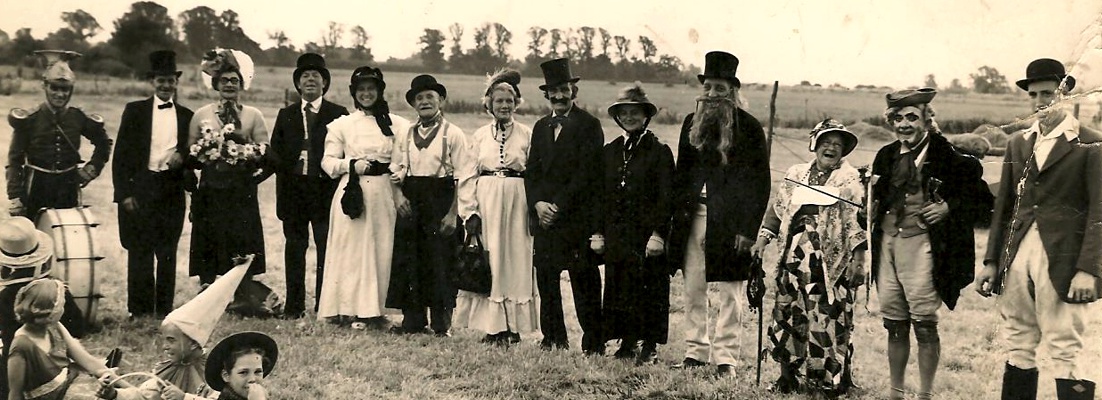
Do you use ‘jearse’ and ‘dow’?
I am interested in the Eastern English dialect that my grandparents spoke, my father speaks and that I can speak. I teach English at a university in Japan but was born and grew up in England.
We all know several words for ‘yes’ and ‘no’ – yes, no, aye, nay and yea for example – but in Eastern English we have two special words for ‘yes’ and ‘no’, ‘jearse’ and ‘dow’. However, they are not included in the Oxford English Dictionary, the Survey of English Dialects or Joseph Wright’s famous English Dialect Dictionary. In my home dialect of the Isle of Ely, we still use ‘jearse’ and ‘dow’ today.
In spring I gave a talk at Cambridge University on ‘jearse’ and ‘dow’. The aim of my research project is to find out how widespread ‘jearse’ and ‘dow’ are, how people use them, and where they come from.
Do you know or use ‘jearse’ and ‘dow’? I am writing a book chapter on ‘jearse’ and ‘dow’ to be published next year and would like to hear from you. Please complete the Jearse and Dow Survey for England below. To take the Dow Jearse Survey for the US, please click here
Jearse and Dow Survey in the media
The Academic Minute, Yes and No in England and America, 1 November 2019.
Podcast on WAMC/Northeast Public Radio.
Valley News, ‘Jearse’-or-‘dow’ questions: Probing New England’s forgotten linguistic quirks, 18 August 2019.
Newspaper article from New Hampshire and Vermont.
BBC Online, Stephen Howe’s mission from Japan: Is that a ‘jearse’ or a ‘dow’?, 20 August 2015.
BBC Radio Suffolk, Studio guest on the Lesley Dolphin Show, 17 August 2015.
BBC Radio Cambridgeshire, Interview on Sue Dougan Lunchtime Live, 29 July 2015.
BBC Radio Norfolk, Studio guest on the Nicky Price Breakfast Show, 19 August 2015.
BBC Radio Lincolnshire, Studio guest on Melvyn in the Morning, 21 August 2015.
Cambridge News, ‘Do you speak Ely? If “jearse”, he wants to hear from you…’, January/February 2015.
Fukuoka University News, 人文学部英語学科スティーブン・ハウ准教授が英国のBBCラジオに出演, website in Japanese, 31 August 2015.
Eastern Daily Press, ‘Yes or no…help us shed light on two little words’, column by Peter Trudgill, 7 September 2015.
Publications and presentations
Howe, Stephen (2015) ‘Emphatic yes and no in East Anglian dialect: jearse and dow’, Paper presented at the Second Southern Englishes Workshop, University of Cambridge, England, 23 March 2015.
This paper looked at emphatic yes and no in East Anglian dialect. In a variety of East Anglian English, non-emphatic forms for ‘yes’ and ‘no’ are, as in much of English, yeah and no. However, emphatic forms are jearse and dow. This East Anglian dialect thus has a four-form ‘yes’–‘no’ system, with yeah–jearse and no–dow. The paper examined the origins and use of jearse and dow, neither of which is recorded in the Oxford English Dictionary or the Survey of English Dialects. The author also compared other forms for ‘yes’ and ‘no’ in English, including the standard yes and informal yeah, non-emphatic un, and regional or archaic aye, yea and nay, as well earlier ‘yes’–‘no’ systems in English. The paper concluded by briefly reviewing ways of answering in the affirmative or negative in other languages.
Howe, Stephen (2015) ‘Are “yes” and “no” universal?’, Paper presented at the Language Variation and Change Research Forum, Fukuoka University, 30 May 2015.
Howe, Stephen (2015) ‘The origin and meaning of “yes” and “no”’, Invited talk, Fukuoka Linguistic Circle, Fukuoka University, Japan, 18 July 2015.
The starting point of this presentation was the forms for ‘yes’ and ‘no’ in my home dialect of East Anglian English. In this dialect, unemphatic forms for ‘yes’ and ‘no’ are, as in much of English, yeah and no. However, emphatic forms are jearse and dow; neither is recorded in the Oxford English Dictionary or the Survey of English Dialects. The paper suggested a possible origin of these forms. The presentation then examined the origin and meaning of ‘yes’ and ‘no’ particles in language more generally. It asked how languages express ‘yes’ and ‘no’, what ‘yes’ and ‘no’ stand for, and whether ‘yes’ and ‘no’ are universal. It also examined the well-known difference between English and Japanese and other languages in answering negative questions (such as Don’t you love me anymore?), where ‘yes’ in one language corresponds to ‘no’ in another. Finally, I discussed paralinguistic ‘yes’ and ‘no’ (as in English uh-huh, uh-uh, Japanese un, uun) and ‘yes’ and ‘no’ gestures, also asking whether these are universal. The presentation concluded by suggesting a possible origin of forms for ‘yes’ and ‘no’.
Howe, Stephen (2015) ‘The forms of “yes” and “no” in English: origin and development’, Paper presented at the 5th conference of the Japan Society for Historical Linguistics, Hokkai-Gakuen University, Sapporo, 20 December 2015.
Howe, Stephen (2016) ‘Eastern English in America: ‘dow’ and ‘jearse’ in New England’, Paper presented at the 3rd Southern Englishes Workshop, University College London, England, 19 February 2016.
Howe, Stephen (2018) ‘Emphatic yes and no in Eastern English: jearse and dow’, in Southern English Varieties: Then and Now, ed. by Laura Wright, de Gruyter Mouton (= Topics in English Linguistics, ed. by Elizabeth Closs Traugott and Bernd Kortmann).
Howe, Stephen (forthcoming 2019) ‘New old words for “yes” and “no” in English’, The Bulletin of the Central Research Institute, Fukuoka University, series A, vol. 19, no. 1, August.
Please take the survey below
If there is any problem with this form, please use this page instead